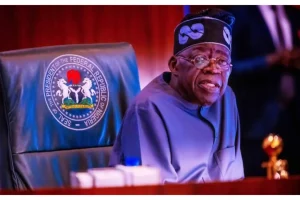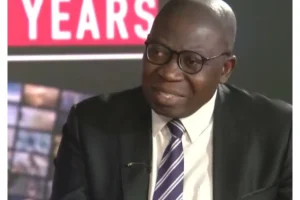
Senator Ali Ndume Criticizes Timing of Tax Reform Bills, Calls for Further Scrutiny
Ali Ndume, the lawmaker representing Borno South in the Senate, has raised concerns about the timing of the proposed tax reform bills, suggesting that while the reforms may have merit, the current political climate makes it an inappropriate moment for such legislation. Speaking on the floor of the Senate on Thursday, Ndume pointed out that the public’s current perception of the government could lead to misunderstandings of the proposed reforms, regardless of their potential benefits.
“As it is today, when you talk about reforms to Nigerians, whether good or bad, they misconceive you,” Ndume remarked, emphasizing that the timing of such reforms is crucial, especially when the populace may not be receptive to government-led changes.
Concerns Over Derivation and VAT
Ndume also highlighted two key contentious issues within the bills: the derivation principle and the Value Added Tax (VAT). He expressed concerns that these provisions could provoke strong opposition, stating that both issues are “not something that many of us will agree to.” The derivation principle, which relates to the allocation of revenue from natural resources to the regions where they are extracted, and the VAT provisions are seen as sensitive and could potentially exacerbate regional and political tensions.
Call for Withdrawal and Review of the Bills
Although Ndume acknowledged the necessity of reform, he urged for the bills to be withdrawn to allow for deeper analysis and adjustments. He clarified that he was not opposed to reform or the tax reform bills themselves, but stressed that the current timing was problematic.
“Reform is necessary if we are to move forward. I am not against reforms, and I am not against the tax reform bills. My issue is with the timing,” Ndume explained. He further argued that the derivation and VAT provisions made the bills “contaminated and contradictory in some cases,” adding that constitutional amendments might be required for these provisions to be implemented effectively.
Ndume advocated for working with the proposals made by the governors and the National Economic Council (NEC), stressing that the bills should undergo additional scrutiny. “We should go with what the governors and the NEC proposed. I’m not saying that the bills should be killed, but we need to withdraw the bill, refine it, and then resubmit it to the National Assembly,” he suggested.
Moving Forward
Ndume acknowledged the potential benefits of the bill but insisted on the need for a more thorough review process, especially considering the views of state governors and traditional rulers, as well as the ongoing constitutional review process. He urged his colleagues in the Senate to prioritize sincerity and open dialogue, calling for adjustments that would make the reforms more broadly acceptable.
“Let’s be sincere with ourselves. If we sit down here and work on this bill as it is now, without considering the positions of governors, traditional rulers, and the NEC, we risk passing a bill that will face strong resistance,” he concluded.





